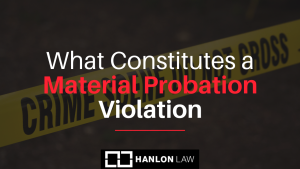In Florida, it is not uncommon for people to be sentenced to a term of probation, either after or in lieu of a prison sentence. People sentenced to probation, or community control, must abide by the terms of their probation order, which, among other things, means they must not commit additional crimes. If they violate any of the order’s terms, their probation may be revoked. While probation revocation hearings are not criminal trials, people before the court for such hearings nonetheless have rights. Accordingly, if their rights are violated and it results in an unjust revocation of probation, there may be grounds for reversing the ruling against them, as demonstrated in a recent Florida ruling. If you are charged with violating your probation, it is wise to talk to a Tampa probation violation defense lawyer about your rights and what defenses you may be able to assert.
Factual and Procedural History of the Case
It is alleged that the state filed an affidavit of violation of probation alleging that the defendant committed three new law violations: armed carjacking, grand theft of a vehicle in the third degree, and resisting an officer without violence. However, the written order of revocation outlined different violations, such as failing to undergo a mental health evaluation, not completing drug/alcohol treatment, failing to make restitution payments, possessing a weapon, failing to report to the community control officer, not staying confined to his approved residence, and failing to submit to electronic monitoring multiple times.
It is reported that during the revocation hearing, the defendant argued whether the carjacking should not be considered “armed.” Despite this, the trial court revoked the defendant’s probation, orally stating that he violated probation by committing the three criminal offenses mentioned earlier. The defendant then appealed. Continue Reading ›
 Tampa Criminal Lawyer Blog
Tampa Criminal Lawyer Blog


